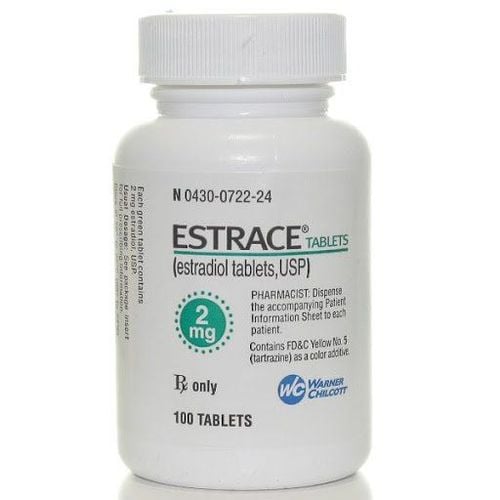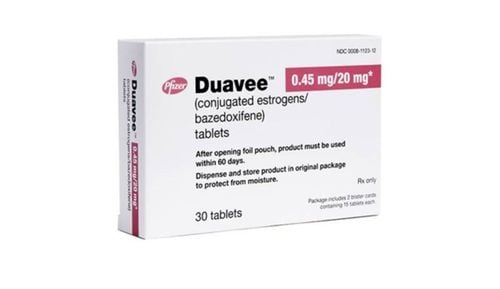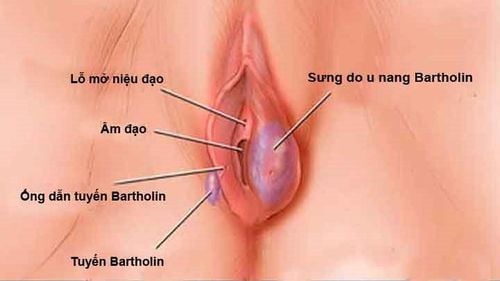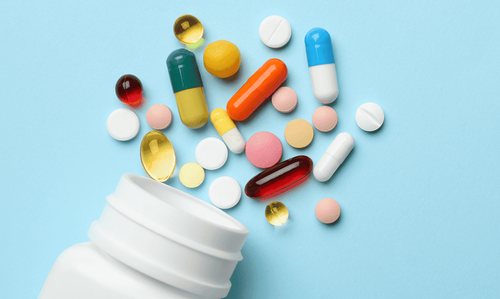This is an automatically translated article.
Most women will go through menopause around the age of 50 or before. The main cause of menopause is a decrease in hormones, which also causes many health problems for women at menopause.1. What is menopause?
The aging changes in the female reproductive organs are mainly due to changes in hormone levels. One obvious sign of aging occurs when your period stops permanently. This is called menopause.The period before menopause is called perimenopause. It can begin several years before a woman's last menstrual period. Signs of perimenopause may include:
Infrequent menstrual cycles, occasional missed periods; Menstrual cycles begin to get longer or shorter; Changes in menstrual volume; Eventually, a woman's periods will become more infrequent, until they stop altogether. Changes in the menstrual cycle can occur along with physical changes in the reproductive organs.
Menopause is a normal part of the aging phenomenon of women. Most women go into menopause around age 50, although it can happen before that age. The normal age of menopause is 45 to 55.
With menopause:
The ovaries stop producing the hormones estrogen and progesterone. The ovaries will also stop releasing an egg (ovum): After menopause, it is physiologically impossible for a woman to become pregnant. Menstruation stops: A woman is considered to be going through menopause after not having a period for 1 year. Women can continue to use a birth control method until one year full menopause. Any bleeding that occurs more than 1 year after the last menstrual period is considered abnormal and should be investigated.

Một người phụ nữ được xem là trải qua thời kỳ mãn kinh sau khi không có kinh trong 1 năm
The vaginal walls become thinner, dry, less elastic and easily irritated. Sometimes sex can be painful because of these changes in the vagina. The risk of vaginal yeast infections increases. The tissues of the external genitalia decrease and thin, and are easily irritated. Other common changes include:
Menopausal symptoms such as hot flashes, emotional changes, headaches and trouble sleeping; Problems with short-term memory; Reduced breast tissue; Lower libido (decreased sex drive) and sexual response; Increased risk of bone loss (osteoporosis); Changes in the urinary system, a woman may increase the frequency and urgency of urination and increase the risk of urinary tract infections; Loss of pelvic floor muscle tone, resulting in the vagina, uterus, or bladder falling out of place (prolapse).
2. How will menopause affect health?
After menopause, a woman's ovaries make very little estrogen. Women entering menopause have very low levels of estrogen. Low levels of estrogen and progesterone increase the risk of a number of health problems after menopause. Other health problems can be attributed to the aging of other organs of the body..Common health problems in women after menopause include:
Heart disease : Before age 55, women Women have a lower risk of cardiovascular disease than men. Estrogen helps blood vessels dilate and helps the body maintain a beneficial balance of good and bad cholesterol. Without estrogen, cholesterol can begin to build up on artery walls leading to cardiovascular events. In their 70s, women have about the same risk of cardiovascular disease as men of the same age. Stroke: A woman's risk of stroke doubles every 10 years after age 55. Lower levels of estrogen in the body cause cholesterol to build up on artery walls and lead to brain complications. Osteoporosis: The drop in estrogen levels after menopause causes a woman to lose bone mass much faster than before, putting her at risk for osteoporosis. Osteoporosis is a condition that causes a woman's bones to become brittle, weak, and break easily. A large recent study found that women who experienced high hot flashes and night sweats during the perimenopausal years experienced more bone loss and were at higher risk of femur fractures than women without symptoms. serious symptoms.
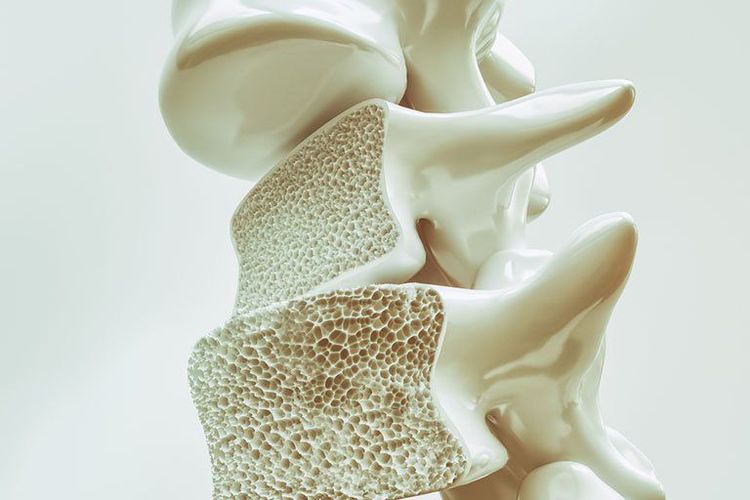
Nồng độ estrogen giảm sau khi mãn kinh khiến người phụ nữ mất khối lượng xương nhanh hơn nhiều so với trước đây, dẫn đến nguy cơ loãng xương
3. Menopause can make you gain weight
Many women gain an average of 2.2 kg after menopause. Lower estrogen levels may play a role in weight gain after menopause. But weight gain can be caused by your metabolism slowing down as you age. You also may not eat as healthy or be as active as you were when you were younger. You also lose muscle mass as you age (muscle burns more calories at rest than other types of tissue in the body).Weight gain can increase the risk of high blood pressure, cholesterol, diabetes, heart attack and stroke. The risk is higher if you are already overweight or inactive or eating healthy. Learn about the effects of overweight and obesity on heart health.
The best way to lose weight, if you are overweight or obese, is to eat fewer calories each day. Exercise or physical activity is also important for good health, but it is better to lose weight than it is to help you lose it. The researchers suggest that this may be because physically active people are often hungrier. Eating healthy and exercising for at least 30 minutes most days is the best way to stay at a healthy weight.
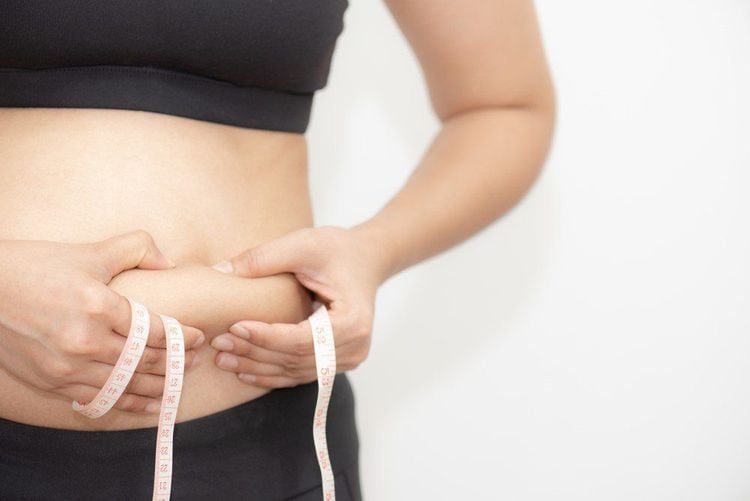
Nhiều phụ nữ tăng trung bình 2.2 kg sau khi mãn kinh
4. What screening do you need after menopause?
All women need routine physicals and screening tests throughout life. Most women can help take care of their health with:Get regular mammograms after age 50 to 75; Have regular Pap tests, even after menopause. You should have a Pap test and an HPV test together every 5 years if you have a cervix, until you are 65 years old and have had 3 clear tests in a row. Take your height regularly to detect bone loss Blood, urine, and other tests to screen for diabetes and heart disease Blood pressure, cholesterol and lab tests other that your doctor recommends Ask your doctor or nurse about flu shots and other vaccines. In addition to the flu shot, there are vaccines for pneumonia, shingles, and other illnesses. Your doctor or nurse may also recommend other tests, depending on your health. For example, you may need to see a specialist for specific problems, such as urinary incontinence.
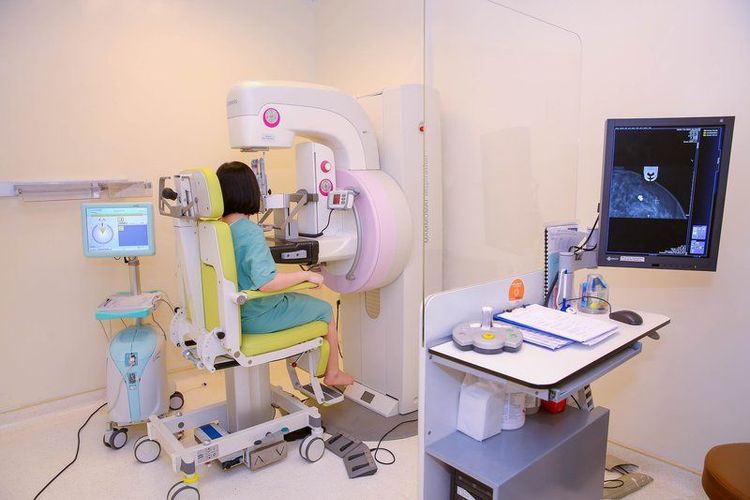
Bạn nên chụp X-quang tuyến vú thường xuyên sau tuổi 50 đến 75
5. How is it possible to stay healthy during and after menopause?
There are many important steps you can take to build your health in the years around menopause.Quit smoking: Quitting smoking is the single most important step you can take to be healthier. Smoking damages your health in many ways, including damaging bones and causing heart disease and 12 types of cancer in women. Exercise regularly: Being physically active for at least 30 minutes most days of the week is one of the best ways you can be healthier. Physical activity can help your bones, heart, and mood. Exercise doesn't have to be complicated. Brisk walking and regular housework are good for your health. Ask your doctor what activities are right for you. Goal to do: At least 2 hours and 30 minutes per week of moderate aerobic physical activity or 1 hour and 15 minutes of vigorous aerobic activity, or a combination of both Get free exercise instruction and other tips for for older adults at Go4Life from the National Institute on Aging at the NIH website. Eat well. Supplementing with vitamins, minerals, fiber and other essential nutrients is just as important as when you were younger. But older women often need fewer calories for energy. Find out how many calories you need each day, based on your age, height, weight and activity level. Talk to your doctor or nurse about supplements. Women over 50 need 2.4 micrograms of vitamin B12 and 1.5 milligrams of vitamin B6 per day. Ask your doctor or nurse if you need a vitamin supplement. After menopause, calcium requirements increase to maintain bone health. Doctors recommend that women 51 and older get 1,200 mg of calcium per day. Doctors also recommend that women age 51 to 70 get 600 international units (IU) of vitamin D per day, and women 71 and older get 800 IU of vitamin D per day. Ask your doctor or nurse if you need calcium supplements or if you need extra vitamin D. Practice safe sex. But you can still get a sexually transmitted infection (STI, or STD). Condoms are the best way to prevent STIs when you have sex. After menopause, the vagina can be drier and thinner, leading to minor cuts or lacerations during sex. A cut or tear in your vagina puts you at higher risk for STIs. Learn other ways to prevent STIs.

Bỏ hút thuốc là bước quan trọng nhất bạn có thể làm để khỏe mạnh hơn
Gynecological examination Gynecological examination, breast examination Transabdominal ultrasound of uterus and ovaries Taking samples for cervical-vaginal cytology Mammogram (2 sides) Measuring osteoporosis Perform tests such as: quantitative FSH (Follicular Stimulating Hormone), quantitative FSH (Follicular Stimulating Hormone), quantitative LH (Luteinizing Hormone), quantitative AMH (Anti-AMH) - Mullerian Hormone), Estradiol quantification, Testosteroned determination, Cholesterol determination, LDL-C (Low density lipoprotein Cholesterol) quantification, HDL-C (High density lipoprotein Cholesterol) quantification, Glucose determination AST (GOT) determination. measure ALT activity (GPT), total urinalysis (By automatic machine),... Customers can check at any time, however, it is best to come to the clinic when there is no vaginal bleeding. The package of pre-menopause health care examination and consultation is not available for customers with estrogen-dependent genital cancer, embolism, hepatobiliary disease.
Please dial HOTLINE for more information or register for an appointment HERE. Download MyVinmec app to make appointments faster and to manage your bookings easily.
References: womenshealth.gov, hopkinsmedicine.org, webmd.com



